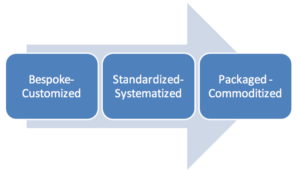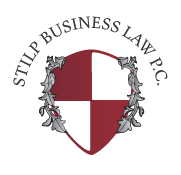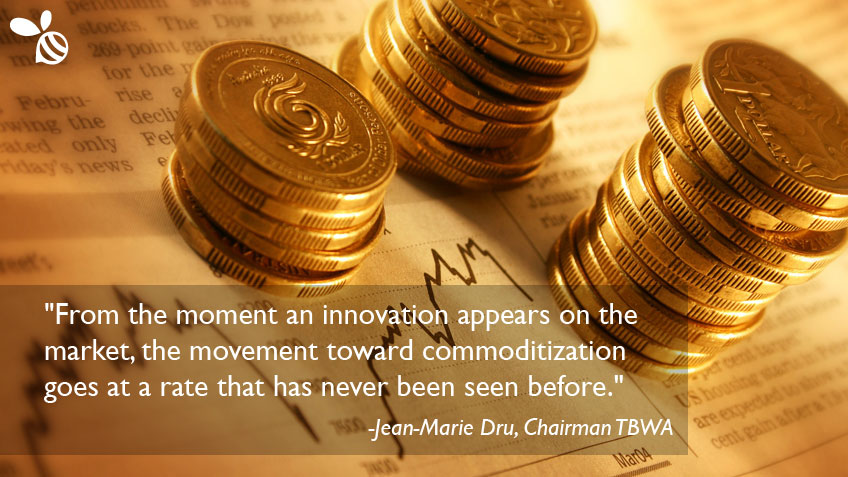Thomas Stilp, JD, MBA/MM, LLM, MSC
There is a cautionary note for all service-based businesses in Richard Susskind’s book, The End of Lawyers: Rethinking the Nature of Legal Services (Oxford Univ. Press). Over a decade ago, Susskind predicted the rise of “bottled” services. Now, “bottled” services are seen across many industries, from accounting, where you can prepare your taxes online, to medicine (that rash may be deadly flesh-eating bacteria or simply a rash).
According to the notion that commoditization of services brings faster, cheaper and better offerings to the market, the ratiocination of practice has given way to a pre-packaging of services, where one-size-fits-all.
There is an evolution of services, from the customized to the commoditized:

(Adopted and modified from R. Susskind, op. cit.)
Courtroom advocacy is a good illustration of customized service. Clever arguments are uniquely tailored for the specific client, are presented in open court, and then lost in the ether, not to be used again.
But as big law firms have become highly profitable corporations, they have acted like undifferentiated big box stores, arguably losing much of their personal touch. High fees created a false measure of client value. Market forces ultimately compelled services to become more standardized, packaged and commoditized (seen today in Legal Zoom and other online services).
The problem with commoditization may be that it offers less and less personal service for cheaper and cheaper costs with what appears to be a race to the bottom where technology replaces people. Consider the automation of phone calls where a business will put the caller on hold for 30 minutes and every minute announce in a pre-recorded voice that “your business is important to us – please remain on the line and someone will be with you shortly.” (When I began law practice over 30 years ago, a law firm’s receptionist was a carefully vetted position as it was one of the most important links to client service.)
Until they replace Judges and Juries with computers (a topic in the next In the Loop series), as we’ve seen in over 150 cases taken to trial, bespoke service is still a requirement, not a luxury, in the courtroom.
Although we have gone through periods of profound change in American history since Abraham Lincoln and Billy Herdon opened their law firm in Illinois in 1844, much that defines a well-respected, experienced law firm should not have changed. The goal should always be to have a personal interest in the client’s matter. Period.
As trusted legal counsel, we’ve represented businesses, professionals and entrepreneurs for over 30 years.
image cred: https://stickybranding.com/the-4-phases-of-the-commoditization-cyce/



